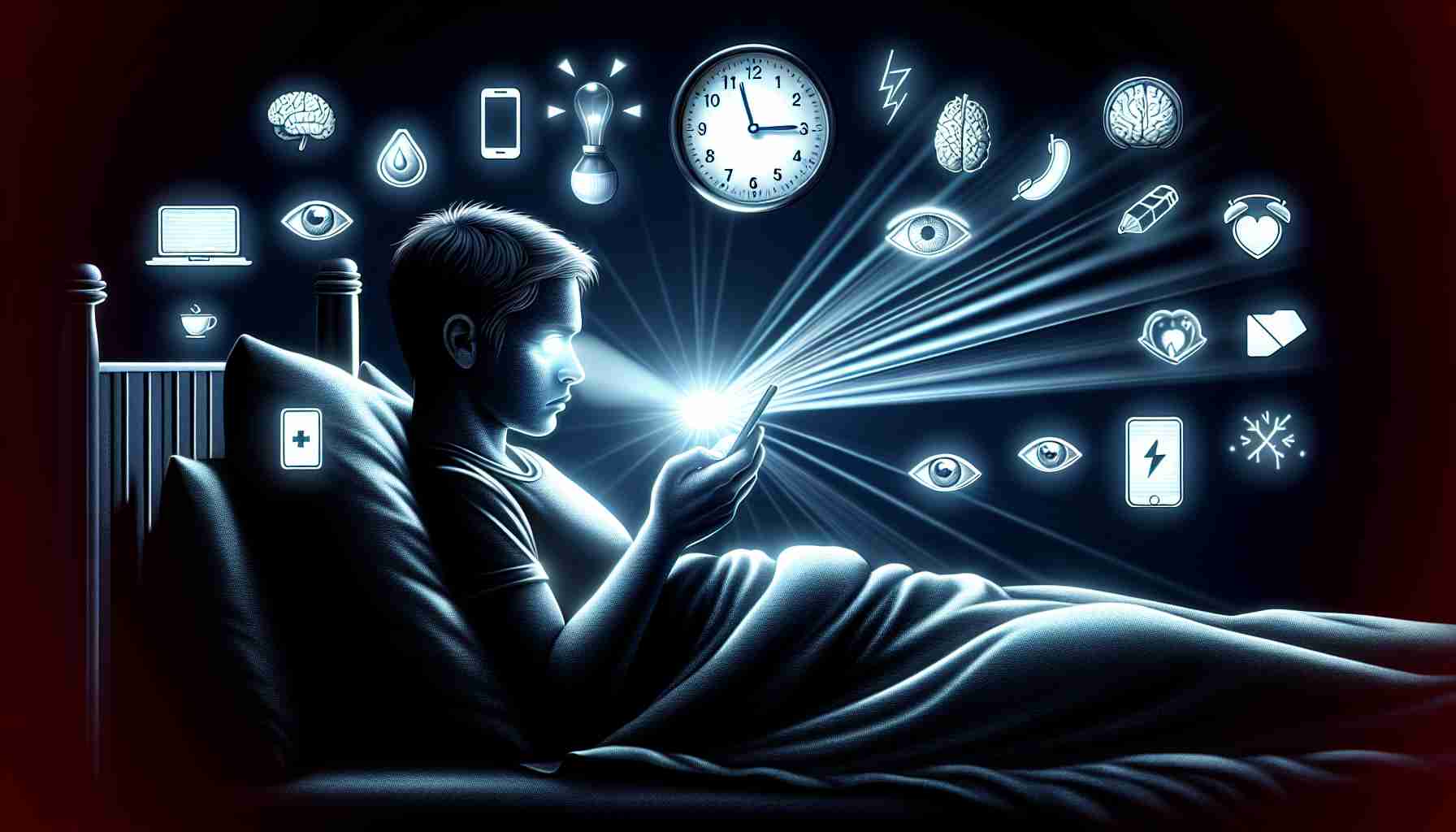Digital Awareness Advocate Cautions Against Midnight Smartphone Use
Concerns regarding the impacts of late-night smartphone interactions on sleep quality were recently highlighted by Rotimi Onadipe, an internet safety magazine publisher. In an education-focused broadcast in Ibadan, Onadipe emphasized the importance of adhering to experts’ recommendations of at least seven hours of sleep per night for various age groups, stressing the sleep deprivation risks imposed by smartphones.
Highlighting the essentials of sleep, he underscored the peril sleepless nights hold for our physical and mental well-being. Loss of sleep, as he detailed, is not a trivial matter but one that can exacerbate health issues such as visual impairments, anxiety, hypertension, and depression. Conversely, a proper sleep routine is a formidable defense against such conditions.
To combat the adverse health implications, Rotimi Onadipe urged users to strike a balance between their digital interactions and sleep needs. He advocated for proactive measures, encouraging individuals to seek advice from health experts if their sleep patterns were disrupted due to excessive smartphone use. Onadipe’s key message was not to let the manifold benefits of technology overshadow the fundamental necessity of adequate sleep, thereby upholding one’s health sovereignty over the lure of late-night screen time.
Health Risks Associated with Late-Night Smartphone Use
Late-night smartphone use can contribute to several health risks that extend beyond poor sleep quality. The blue light emitted from smartphone screens is known to disrupt the body’s circadian rhythm, which is the natural sleep-wake cycle. This disruption can lead to difficulty falling asleep, restless sleep, and reduced levels of melatonin—a hormone responsible for controlling the sleep-wake cycle.
Moreover, late-night smartphone interaction can increase the risk of sleep disorders such as insomnia or sleep apnea. The mental stimulation from engaging with content on smartphones, including social media, emails, or games, can also contribute to a heightened state of alertness that further impedes the ability to fall asleep.
Most Important Questions and Answers
Q: Can late-night smartphone use affect mental health?
A: Yes, it can contribute to stress and anxiety. The constant connectivity can prevent mental downtime, necessary for relaxation and recovery.
Q: Are there any specific health consequences for children and adolescents?
A: Children and adolescents may experience behavioral issues, attention problems, and poor academic performance due to impaired sleep and cognitive functioning.
Key Challenges or Controversies
One key challenge is how to balance the modern dependency on smartphones for communication, work, and entertainment with the need for quality sleep. Many people need to be available for work beyond traditional hours, which can often lead to late-night screen usage. Additionally, the fear of missing out (FOMO) can drive individuals to check their phones constantly, even at night.
A controversy arises from the argument that technology, by itself, is not detrimental, but rather the way it is used. Therefore, placing practical guidelines on smartphone use rather than demonizing technology may be a more constructive approach.
Advantages and Disadvantages of Late-Night Smartphone Use
Advantages:
– Immediate access to information and communication.
– The ability to work flexibly at any hour.
– Entertainment and relaxation through media consumption.
Disadvantages:
– Disruption of sleep due to blue light exposure and mental stimulation.
– Increased risk of mental health issues like anxiety and depression.
– Potential negative impact on physical health, such as increased risk of obesity and cardiovascular diseases.
For those seeking more information on the health implications of late-night smartphone use, reputable sources such as the National Sleep Foundation can be a valuable resource. It might be beneficial to look for tools or suggestions on how to mitigate these risks on their website: National Sleep Foundation.
The source of the article is from the blog hashtagsroom.com
